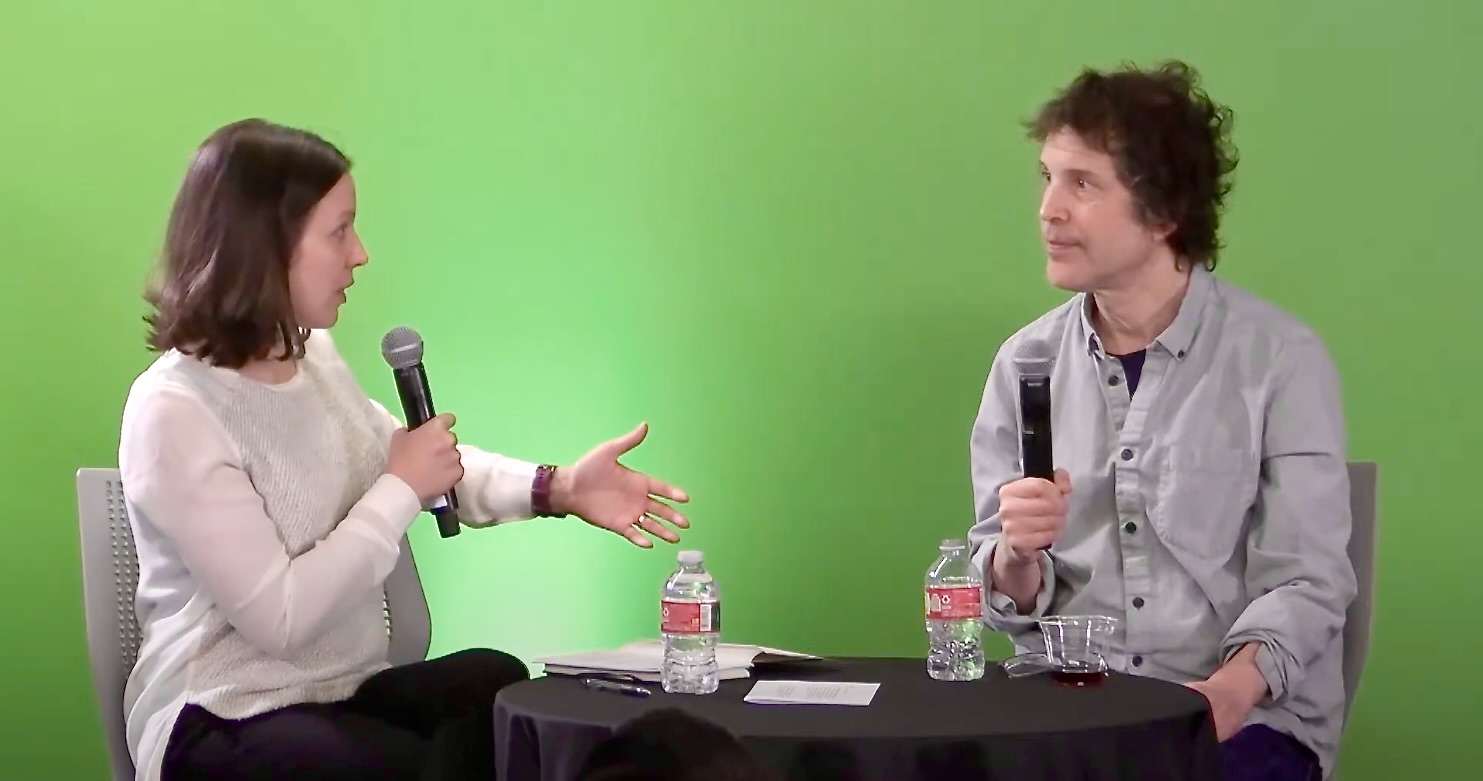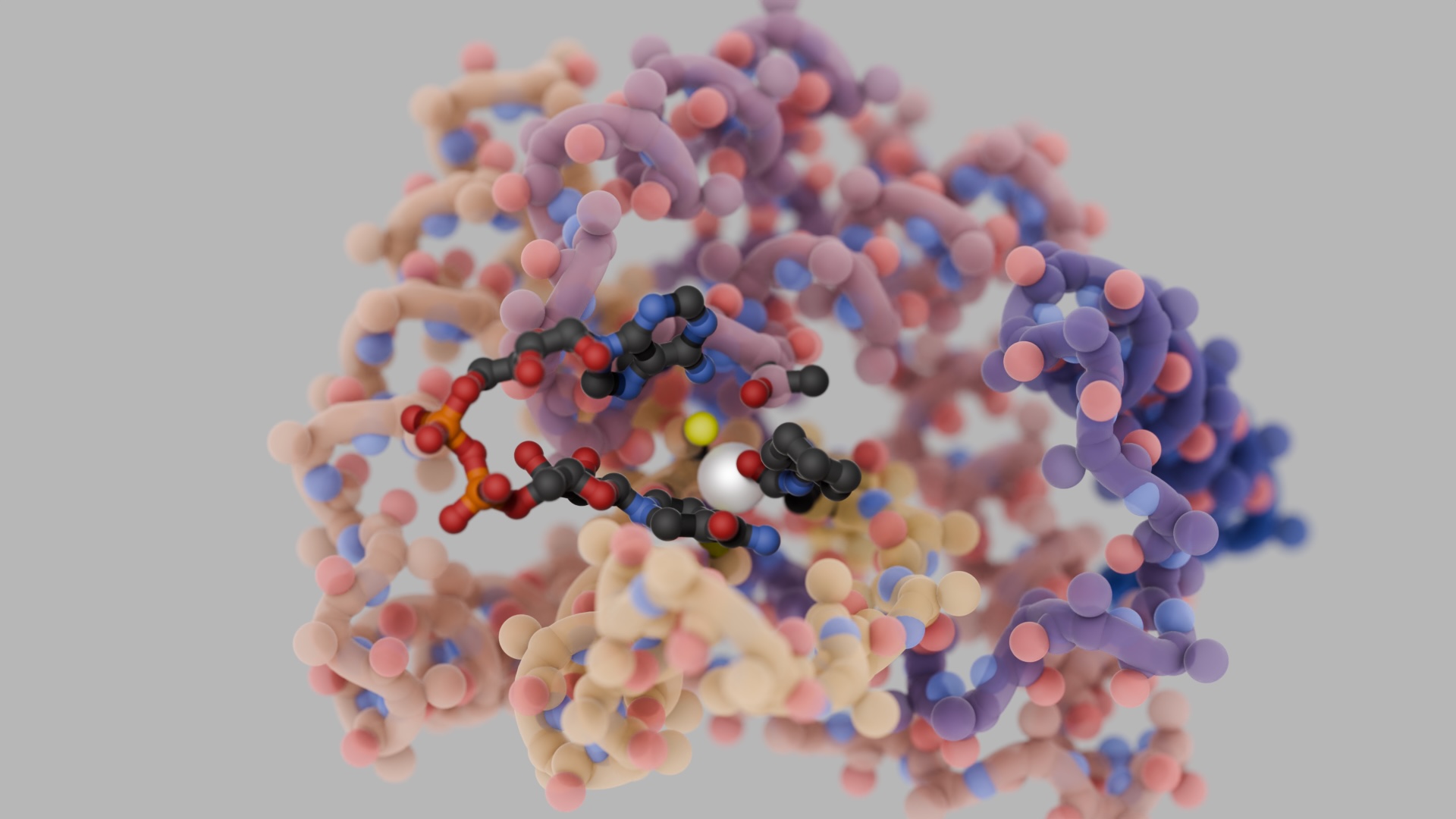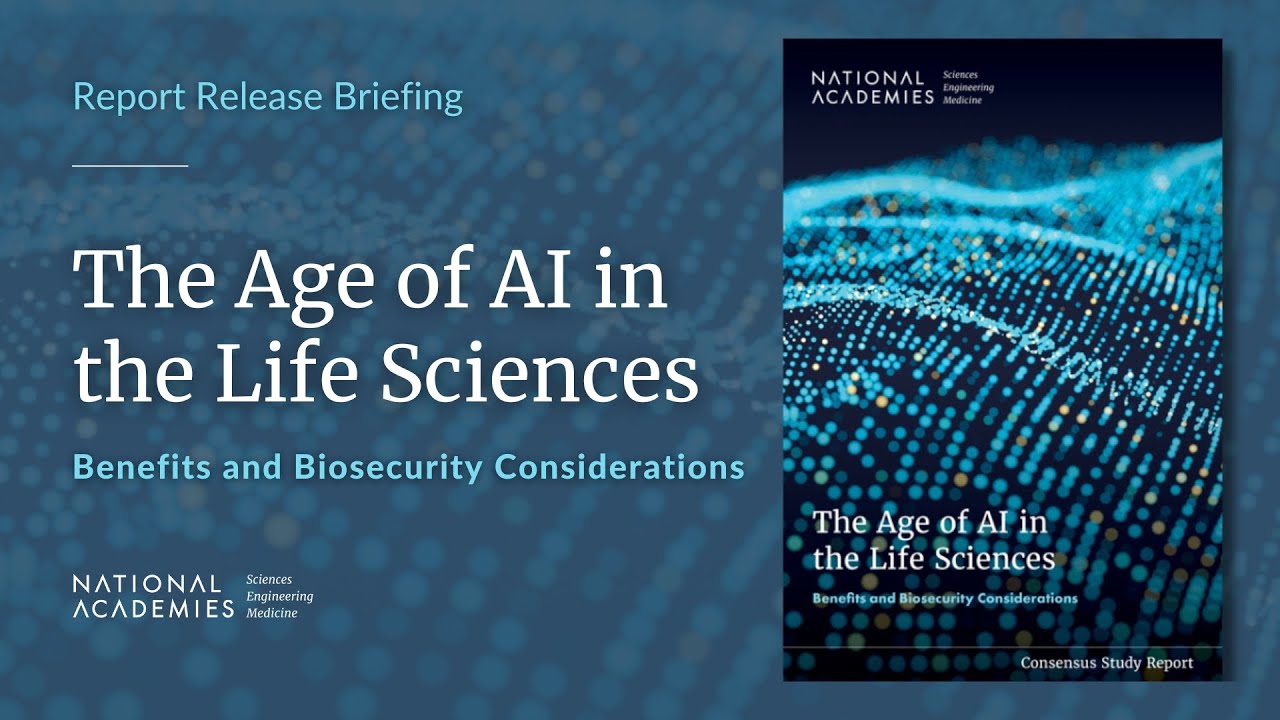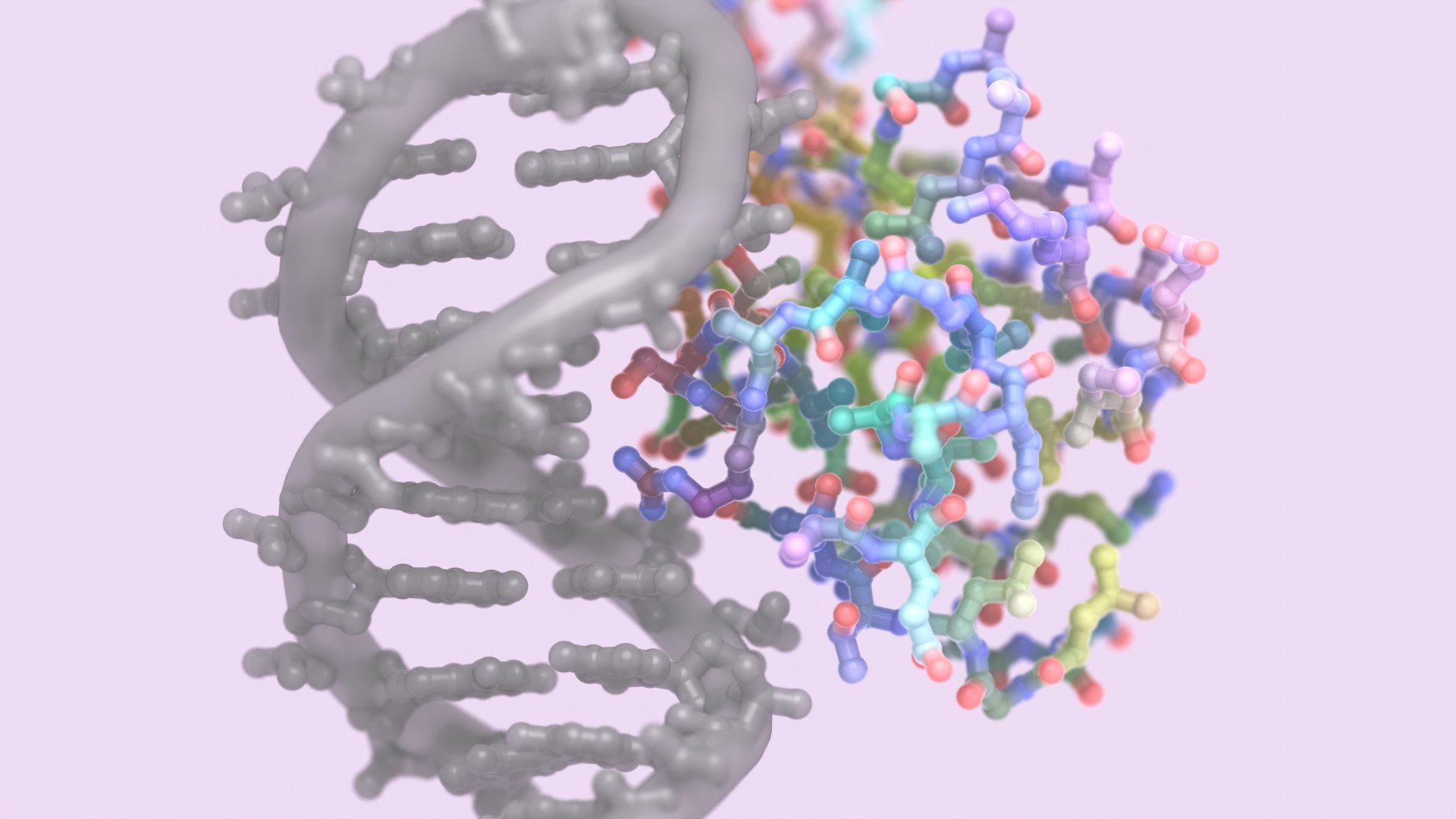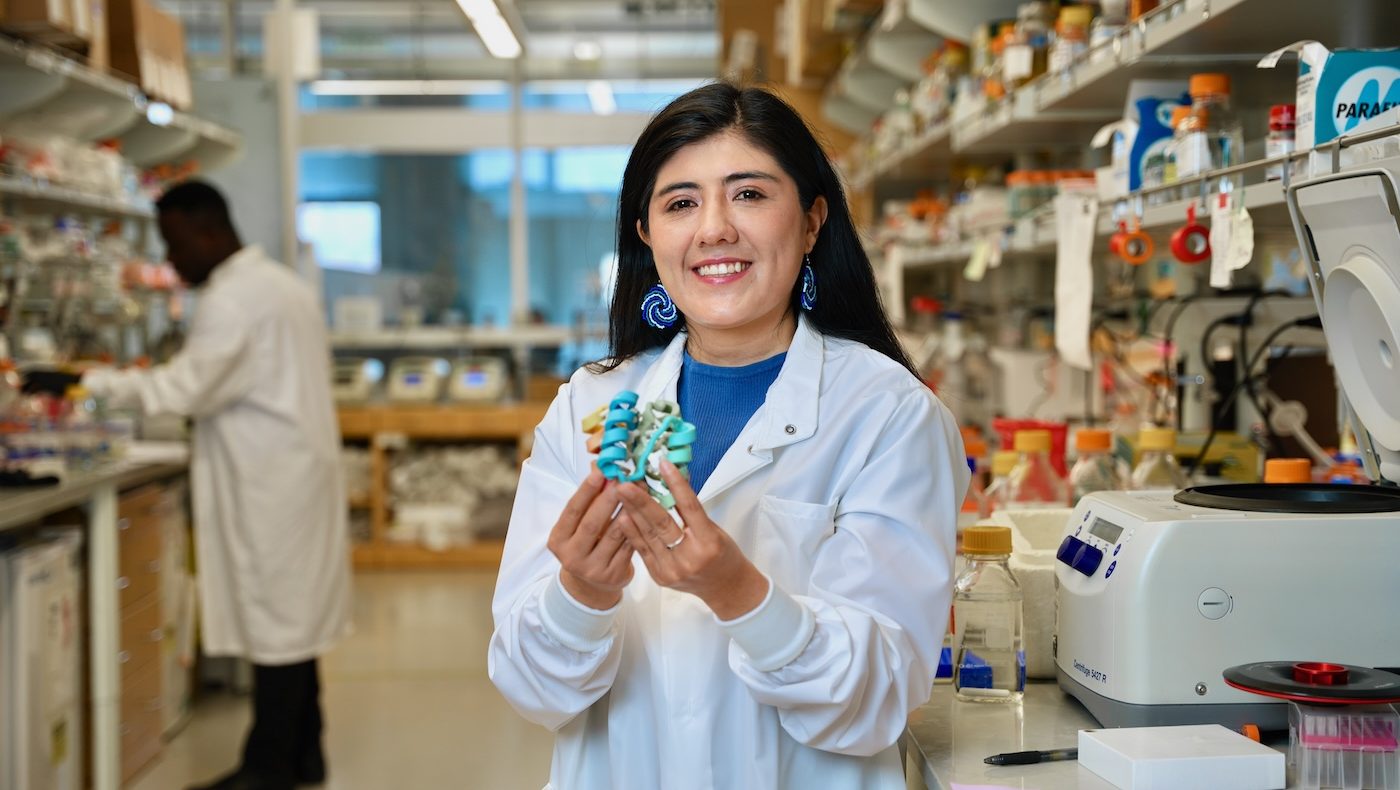IPD director David Baker recently spoke at START SOMETHING, a series by UW CoMotion that features conversations with entrepreneurs and innovators.
This post highlights key points from the event, moderated by Jenny Cronin, principal at the Allen Institute for AI (AI2) Incubator. The two spoke about the impact of artificial intelligence on life sciences and healthcare startups. Their full conversation is available on YouTube.
Integrating AI into Protein Science
The Institute for Protein Design is at the center of a technological revolution. For decades, David’s group and others developed and used traditional physics-based software such as Rosetta to model and design biomolecules. Today, AI-driven approaches are transforming this work.
Where does change like this come from? “We have a lot of people wanting to collaborate and visit, and they often bring in ideas,” David said.
AI tools for protein design have enhanced our ability to create molecules with advanced functions, including experimental vaccines, medicines, nanomaterials, and much more. Many of the most powerful and popular AI-based tools for protein science were created here at UW Medicine.
AI’s Impact on Therapeutics and Beyond
From shortening the time it takes to respond to new viruses to enhancing treatments for solid tumors, David sees profound medical potential in these tools. “I think we’re going to see a transition from protein therapeutics being obtained by kind of black magic — immunizing an animal and letting the natural immune system come up with a solution — to actually being designed rationally,” he said.
Beyond delivering the world’s first computer-generated protein medicine, scientists here at the Institute for Protein Design are advancing research in non-therapeutic areas. This includes developing artificial photosynthetic systems and custom nanopores for environmental monitoring.
The Power of Open Science
We have elected to make our most powerful AI-driven tools for protein design, including RFdiffusion and ProteinMPNN, completely open source, meaning any researcher in the world can use them or improve on them at no cost. David discussed how this strategy has allowed for much greater collaboration and innovation, leading to a worldwide explosion in new protein design technologies and applications.
David’s advice for budding scientists and entrepreneurs: be open to collaborations and reach out to experts in your field. “I encourage my students to just email people. If they’re working on a problem, I say figure out who the best three people are in the world and email them. Sometimes you won’t get an answer, but other times you will, and that can start a connection which could really transform your research.”
The Commercial Potential of Scientific Research
Our Institute fosters entrepreneurship in many ways, including through our Translational Investigator Program and by encouraging open dialogue among researchers within and beyond our walls.
“If you choose the right problems, where this is the time to solve them, a surprisingly large fraction will have some commercial potential — maybe in a way that you didn’t anticipate,” David explained. “That certainly happened with a lot of the things we’ve done.”
Seattle as a Biotech Hub
David’s commitment to his homecity Seattle has contributed to the city becoming a thriving ecosystem for biotech startups. Many of our Institute’s spinouts were formed and remain in Seattle, which has been pivotal in building this ecosystem. We look forward to launching many more companies in this vibrant city.

